Jaakiran kanavodu saatru
Suzhuthi vaadhaia dhatravan;
Vaakirandhu niraindhu nindradhor
Vaakiyap poruL aanavan.
Word meaning
jaggiram, kanavu, suzhuthi = waking, dreaming, sleeping states; vaak(u) irandhu = word dead; vaakiya poruL = meaning of Veda maha vakyas;
Meaning
Our Ramana is beyond the states of waking, dreaming and sleeping and the consequent sufferings emanating from those states. He is established in a state that defies description by words. He is the meaning of all the ‘maha vaakyas’ declared in the Vedas.
In Ribhu Gita which was highly recommended by Bhagavan (when Sampurnamma said she didn’t understand the meaning, he said “It does not matter that you do not understand. Still it will be of great benefit to you”), we find a sloka that explains this state of Bhagavan:
Ch 26, V 21: Abide as That in which there are none of the three kinds of bodies (gross physical, subtle internal, or formless and most subtle), dreaming and sleeping, none of the three kinds of souls (those who are fully prepared to advance spiritually, those who are not fully prepared, and those who are not prepared at all), none of the three kinds afflictions (those of the body, those caused by the elements, and those caused by subtle beings and powers), none of the five functional layers of being (gross physical, vital, emotional- psychic, mental, and that of formless bliss), no one to identify himself with them - and be always happy, without the least trace of thought.
In Ashtavakra Gita (17.10), Sage Astavakra says of this state:
The sage is neither asleep nor awake.
He neither closes nor opens his eyes.
Thus, for the liberated soul,
everywhere there is only This.
Ranga, a devotee, says in Ramana Periyapuranam that “I should like to record that I never once saw him yawning or stretching his limbs to loosen up his body.” No one has seen Bhagavan sleep or even lie down flat, ever!
There are four great sentences (Maha Vakyas) from the four Vedas Rg, Yajur, Sama and Atharva, namely, Prajñānam Brahma, Ayam Ātmā Brahma,Tat Tvam Asi, Aham Brahma Asmi. The first is in Aitareya Upanishad of Rig-Veda. The second is in Brihadaranyaka Upanishad of Yajur-Veda. The third is in Chhandogya Upanishad of Sama Veda. And the fourth is in Mandukya Upanishad of Atharvana Veda.
SV declares that Bhagavan Ramana is the meaning of these maha vakyas which result after the death of words (vaakirandhu niraindhu nindradhu = fullness standing after death of words). Bhagavan used to say that words are the grandson of Silence (then thought, then words), hence it is the most powerful teaching, undiluted. And he remained in that state radiating his teaching to whoever came to him.
Suzhuthi vaadhaia dhatravan;
Vaakirandhu niraindhu nindradhor
Vaakiyap poruL aanavan.
Word meaning
jaggiram, kanavu, suzhuthi = waking, dreaming, sleeping states; vaak(u) irandhu = word dead; vaakiya poruL = meaning of Veda maha vakyas;
Meaning
Our Ramana is beyond the states of waking, dreaming and sleeping and the consequent sufferings emanating from those states. He is established in a state that defies description by words. He is the meaning of all the ‘maha vaakyas’ declared in the Vedas.
In Ribhu Gita which was highly recommended by Bhagavan (when Sampurnamma said she didn’t understand the meaning, he said “It does not matter that you do not understand. Still it will be of great benefit to you”), we find a sloka that explains this state of Bhagavan:
Ch 26, V 21: Abide as That in which there are none of the three kinds of bodies (gross physical, subtle internal, or formless and most subtle), dreaming and sleeping, none of the three kinds of souls (those who are fully prepared to advance spiritually, those who are not fully prepared, and those who are not prepared at all), none of the three kinds afflictions (those of the body, those caused by the elements, and those caused by subtle beings and powers), none of the five functional layers of being (gross physical, vital, emotional- psychic, mental, and that of formless bliss), no one to identify himself with them - and be always happy, without the least trace of thought.
In Ashtavakra Gita (17.10), Sage Astavakra says of this state:
The sage is neither asleep nor awake.
He neither closes nor opens his eyes.
Thus, for the liberated soul,
everywhere there is only This.
Ranga, a devotee, says in Ramana Periyapuranam that “I should like to record that I never once saw him yawning or stretching his limbs to loosen up his body.” No one has seen Bhagavan sleep or even lie down flat, ever!
There are four great sentences (Maha Vakyas) from the four Vedas Rg, Yajur, Sama and Atharva, namely, Prajñānam Brahma, Ayam Ātmā Brahma,Tat Tvam Asi, Aham Brahma Asmi. The first is in Aitareya Upanishad of Rig-Veda. The second is in Brihadaranyaka Upanishad of Yajur-Veda. The third is in Chhandogya Upanishad of Sama Veda. And the fourth is in Mandukya Upanishad of Atharvana Veda.
SV declares that Bhagavan Ramana is the meaning of these maha vakyas which result after the death of words (vaakirandhu niraindhu nindradhu = fullness standing after death of words). Bhagavan used to say that words are the grandson of Silence (then thought, then words), hence it is the most powerful teaching, undiluted. And he remained in that state radiating his teaching to whoever came to him.

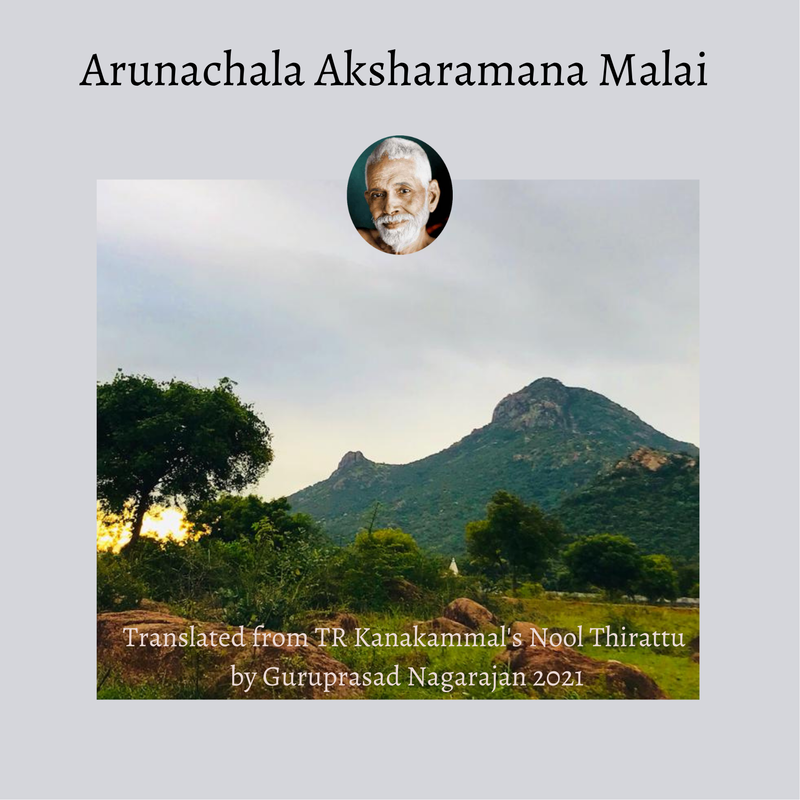
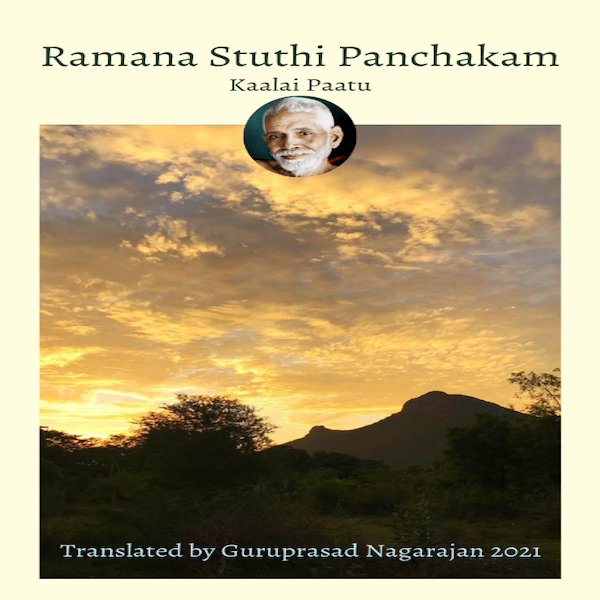
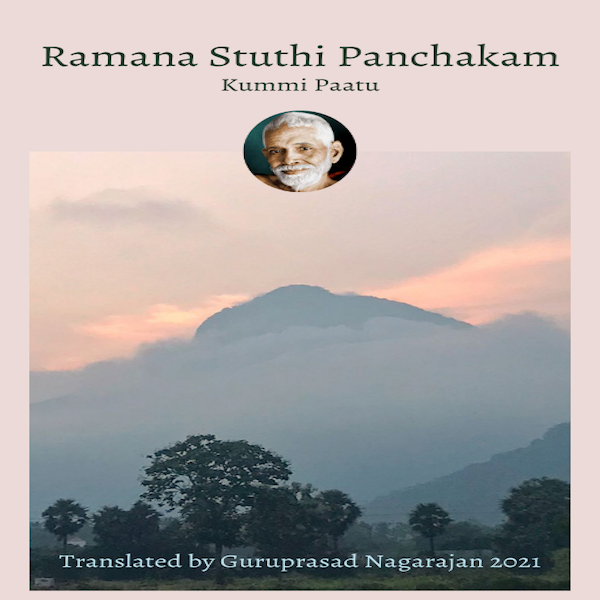
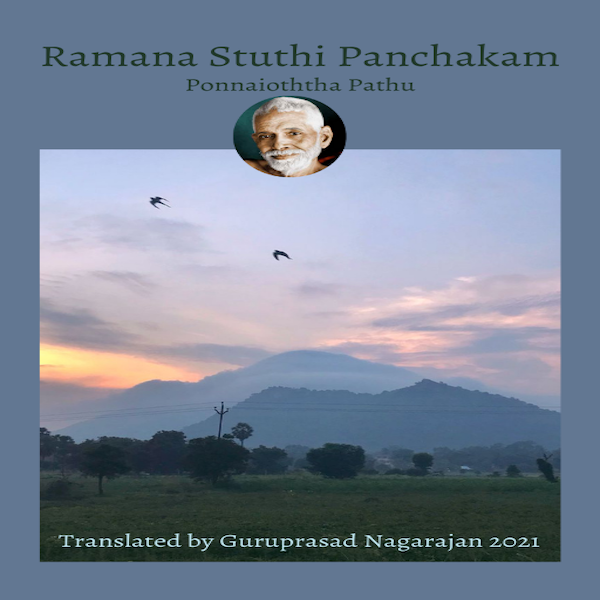
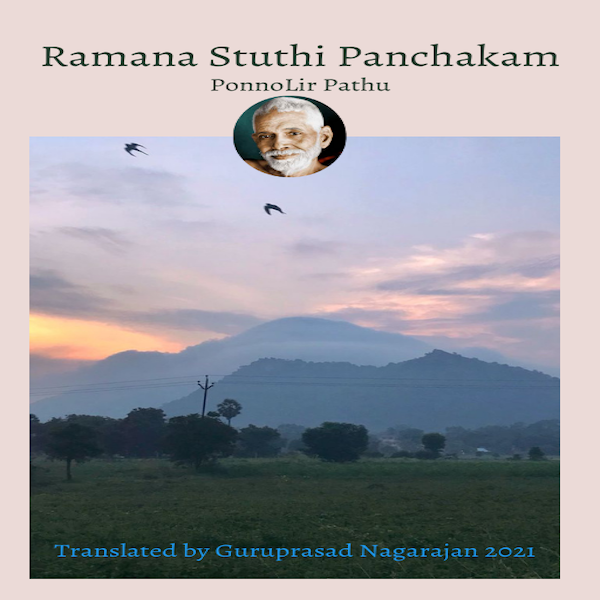
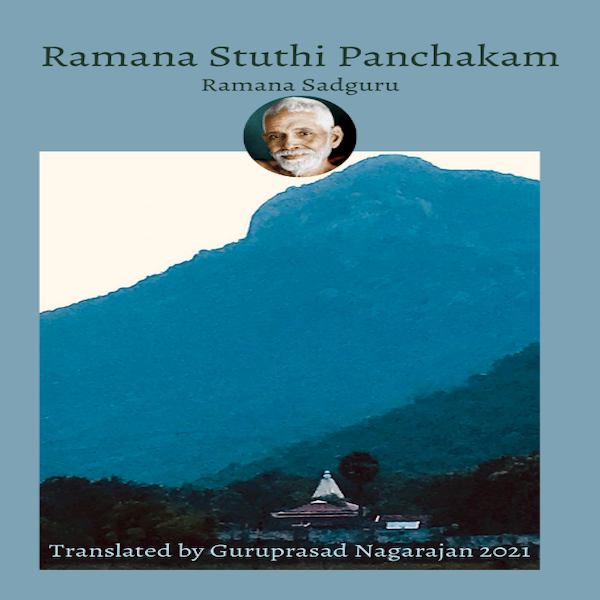
 RSS Feed
RSS Feed